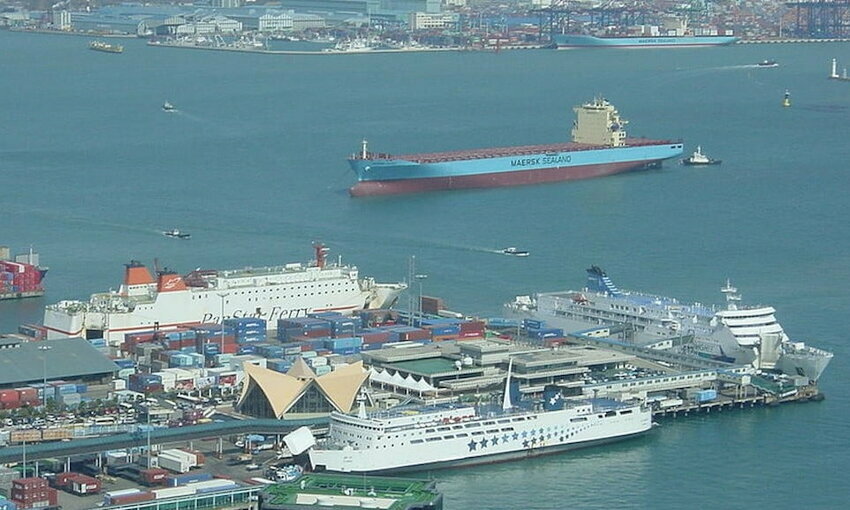 (Credit: Ship It Zero)
(Credit: Ship It Zero)The Ship It Zero campaign’s recent report card reveals that major retailers and carrier lines have failed to take steps towards decarbonizing their maritime fleets, most not tracking shipping emissions at all.
The report held several major retailers accountable, including Amazon, Home Depot, Lowe’s, and Walmart, all of whom fell short of necessary emission reduction efforts. These companies and most others in the report rely on false climate solutions, like liquefied natural gas, known for being even more damaging than ordinary gas, and scrubbers, which are meant to clean exhaust from ships yet create additional pollutants in the process, according to Ship It Zero. Most companies have also largely failed to reduce Scope 3 emissions, which occur across the value chain.
Maritime shipping negotiated itself out of the Paris Agreement despite accounting for 3% of global emissions, Ship It Zero said. In July 2023, the UN’s International Maritime Organization set emissions reduction targets of 30% by 2030 and 80% by 2040, which many environmentalists say is not nearly sufficient considering 90% of world trade is transported by sea.
That agreement also called for the shipping industry to reach net zero "by or around" 2050. According to an AP report, experts said the industry needs to cut emissions by 45% by 2030 to reach net zero by 2050 and stay on track with international climate goals.
“While the globe is burning, retailers and cargo carriers are doing little to address emissions from shipping their goods,” said Eric Leveridge, Ship It Zero Lead. “Home Depot, Lowe’s, Walmart, Amazon, and CMA CG, in particular, are failing to clean up their shipping pollution while Mediterranean Shipping Company, Ocean Network Express, Hyundai Merchant Marine are barely passing. Addressing the climate crisis is urgent and we have no time to waste, retailers and cargo carriers must act now.”
In assessing retailers and shipping carriers, researchers reviewed the companies’ corporate social governance reports, climate disclosure project reports, and press releases in order to track decarbonization commitments and emissions disclosures. They also assessed what companies have been doing specifically to end port pollution, phase out high-emissions ships, and develop a long-term decarbonization strategy.
Most companies in the report do not have an air pollution reduction commitment or reduction plan, have incomplete if any emissions reporting, and are without partnerships towards investing in zero-emission efforts, the research found.
The two with the best scores, in the retailer and shipping carrier respectively, were IKEA and Maersk, IKEA with the highest score for its public commitments to reducing port pollution, setting ambitious emission reduction targets, and aiming to achieve zero-emissions ocean shipping by 2040. Maersk has made similar public commitments but still has insufficient public reporting and continues to see increased emissions and reliance on scrubbers.
Without more aggressive action, shipping emissions are expected to grow to 50% over 2018 levels. Ship It Zero said it encourages companies to take steps towards zero-emissions goals in order to mitigate global warming and keep global temperatures below 1.5 degrees Celsius, per the Paris Agreement.
“Our report card clearly shows that, while some retailers and cargo carriers have made progress, there’s still a long way to go,” said Kendra Ulrich, Shipping Campaigns Director for Stand.earth. “Decarbonizing the shipping industry is urgent and we are putting retailers and their cargo carriers on notice. We urge companies to commit to achieving 100% zero-emission, fossil-free ocean shipping by 2030 to ensure a healthier, cleaner tomorrow for our communities and our climate.”